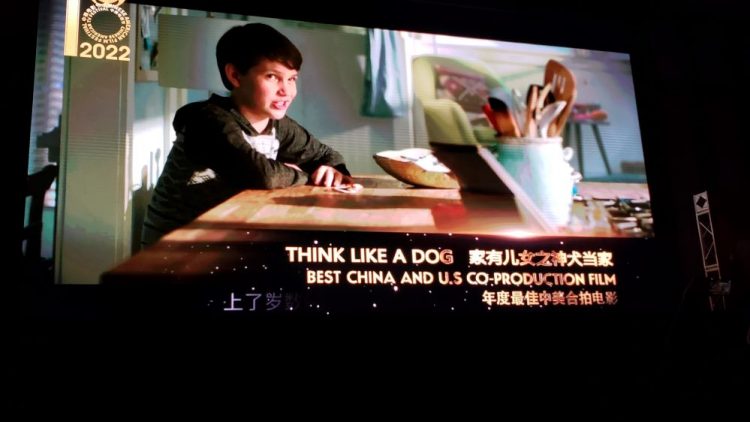The Golden Angel Awards ceremony in San Gabriel, California, was an occasion that kept politics in the foreground, but which simultaneously managed to downplay the frosty current state of U.S.-China diplomatic relations.
The awards event on Friday night also served as the opening ceremony of the 18th edition of the Chinese American Film Festival (CAFF) and Chinese American TV Festival (CATF), annual events which showcase Chinese movies in the home state of American moviemaking.
After an elegant fashion show by Chinese womenswear brand Yu Tai Xiang, U.S. Congresswoman Judy Chu took to the stage to speak about the upcoming midterm elections in the U.S., talk up Chinese-American history, and to rail against the recent rise in anti-Asian hate crimes in the U.S.
“We need the [U.S.] public to know that AAPI [Asian American and Pacific Islander] history is American history,” she said.
CAFF organizer James Su laid down a similarly laudable message. “We should use the power of film to fight hate crimes against the Asian American community,” he said.
They gave an “AAPI Film Pioneer” award to Bruce Lee, the iconic Chinese kung fu star who broke into Hollywood 50 years ago with “Fist of Fury” and who was credited with building a bridge between the East and West through his movies.
Lee’s daughter Shannon was on hand to accept the award on behalf of her father. “Thank you for recognizing his impact, his fight for Asian representation in Hollywood, for his desire to create and share authentically his culture with the world,” she said.
Another speaker urged the largely Chinese American dinner and awards crowd: “Don’t forget to vote.” The irony can scarcely have been missed, but the moment passed without a beat.
The acceleration into film awards procession was just as surreal. Only moments after an offstage compere urged prize winners to keep their acceptance speeches under 30 seconds the winner of the short film category launched into an emotional thank-you discourse that was as long as many shorts and had to be drowned out by recorded music. He was not the last among the in-person recipients to endure that fate. The many winners and presenters who could not travel from China to the ceremony and sent video messages instead were far more self-disciplined.
Given China’s current film releasing drought and this year’s China box office malaise, Sino-U.S. political tensions were not the only cracks to be papered over. Many of the feature film awards went to Chinese-made movies whose impact had not registered in the U.S.
The award for best China-U.S. co-production was a stretch considering that such co-productions have all but dried up. The award went to “Think Like a Dog,” a family-friendly comedy starring Josh Duhamel, Megan Fox and Gabriel Bateman that shot in 2018, earned an earlier CAFF award in 2019, went straight to video in 2020 and played as this year’s CAFF opening title. The film’s director and writer Gil Junger told Variety that “Think Like a Dog” had not been conceived as a co-production but was instead reconfigured as such after filming in China and receiving Chinese government finance.
The best film award appeared to be shared between ten titles ranging from the fine art of Zhang Lu’s “Yanagawa” to the patriotic title “My Country, My People.”
But as the ceremony progressed one title “Nice View” emerged as a repeat winner – sharing the best film prize and also collecting the best director award (Wen Muye) and best producer award (Liu Mingyi). Hatched with government approval, it tells a heartwarming story of a young man who went to extreme and amusing lengths to raise money for his younger sister’s urgent surgery.
The film’s success on the night was a smart choice. The title was smash hit in February when box office tidings were rosier. It is also set as the CAFF’s closing title and recently emerged as China’s contender for the best international feature Oscar.
Guests on the night included Andre Morgan and Ellen Eliasoph, producers with depth of experience on both sides of the Pacific; Zhang Ping from the Consulate General of the People’s Republic of China in Los Angeles; Warner Bros. senior VP Tonis Kiis; Universal Pictures International senior VP; Jeffrey Forman, Walt Disney Studios senior VP; and “Rush Hour” producer Arthur Sarkissian.
Source by variety.com


